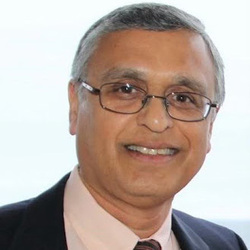
Dr. Asit BAXI
Baxi Engineering Inc. (BEI),USA
Tentative Topic: Post-tensioned Concrete Members under Severe/Heavy Loading Conditions
Asit BAXI
Dr. Asit N. Baxi is a renowned structural engineer and founder of Baxi Engineering Inc. and Global Post-tensioning Solutions. With over 34 years of experience in prestressed concrete, he is widely recognized as an expert in post-tensioned buildings. His firm specializes in the comprehensive engineering of post-tensioned concrete structures, covering analysis, design, construction, repair, and forensic investigation using various post-tensioning systems. Dr. Baxi actively contributes to the industry through his involvement in several key committees. He is a member of PTI Committees DC-20 (Building Design), DC-110 (Building Information Modeling), and TAB-120 (Technical Advisory Board), as well as ACI Subcommittees 301-I (Post-Tensioned Concrete) and 318-G (Precast and Prestressed Concrete). Additionally, he serves on the Joint ACI-ASCE Committee 423 for Prestressed Concrete.
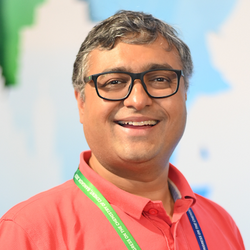
Dr. Shashank BISHNOI
IIT Delhi, India
Tentative Topic: Carbonation of low clinker concretes: when it is a concern and when it is not
Shashank BISHNOI
Dr. Shashank Bishnoi is a Professor in the Department of Civil Engineering at the Indian Institute of Technology Delhi. His research spans a wide array of topics within civil engineering, including the micromechanical behavior of cementitious materials and concrete, the development of innovative materials such as Limestone Calcined Clay Cement (LC3) and Limestone Calcined Clay Pozzolan (LC2), and the hydration of supplementary cementitious materials. Prof. Bishnoi also focuses on modeling cracking and the durability of concrete, utilizing physical chemistry to understand the microstructural development of hydrating cement pastes, and examining the effects of admixtures on concrete performance. His areas of interest further extend to cement, sustainability, and the seismic retrofitting and strengthening of structures.
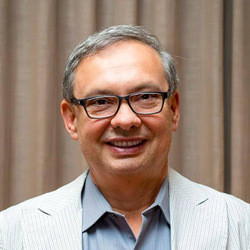
Dr. Pedro Castro BORGES
Avanzados del IPN Unidad Mérida, Mexico
Tentative Topic: Concrete durability in vulnerable coastal communities. The role of the participatory action research (PAR) for social appropriation.
Pedro Castro BORGES
Dr. Pedro Castro Borges is a researcher at the Center for Research and Advanced Studies of the National Polytechnic Institute in Mérida, México since 1986. His work is centred on corrosion, durability, sustainability, and repair systems for reinforced concrete. Dr. Castro has received recognition for his work at the national and international levels, winning accolades such as the NACE H.H. Uhlig Award and other awards from several organisations such as NACE Mexico, the Cuban government, and ALCONPAT International (that is, the Latin-American Association of Quality Control, Pathology and Recovery of Construction). In 2021, he was named the Honorary President of RILEM. Dr. Castro is a Fellow of AMPP and ALCONPAT International, and an honorary member of the Brazilian Concrete Institute. He is one of the founders and the current Editor-in-Chief of the ALCONPAT Journal and the Director General of ALCONPAT-International.

Dr. Gino EBELL
BAM, Germany
Tentative Topic: Stress corrosion cracking in prestressed concrete bridge - A case study
Gino EBELL
Dr. Gino Ebell finished his Diploma thesis in 2007 in Berlin and his Master thesis in 2011, also in Berlin. He finished his Ph.D. study in 2023 at RPTU Kaiserslautern Germany. He has been deputy head of department 7.6 Corrosion and Corrosion Protection of the Federal Institute for Material Research and Testing since 2017.
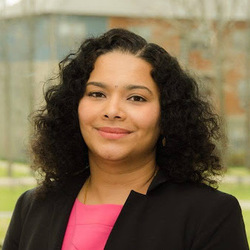
Dr. Sriramya Duddukuri NAIR
Cornell University, USA
Tentative Topic: Viability of Utilizing Supplementary Cementitious Materials for Subsurface Infrastructure
Sriramya Duddukuri NAIR
Dr. Sriramya Duddukuri Nair is an Assistant Professor in Civil and Environmental Engineering at Cornell University. Her research is centered on the development and characterization of novel cementitious materials, with a particular focus on sustainable alternatives. In January 2023, Nair was named an Early-Career Research Fellow of the Gulf Research Program (GRP) of the National Academies of Sciences, Engineering, and Medicine. She is also an active member of American Concrete Institute and American Ceramics Society. Her research interests span the development of sustainable cementitious materials, durability assessments, and innovative applications like 3D printing of concrete and well cementing. She also work on a novel cementitious materials with the use a magnetic approach to control their rheological properties in real time, facilitating their appropriate placement and on-demand setting.

Dr. O. Burkan ISGOR
Oregon State University, USA
Tentative Topic: Dual Purpose Titanium Alloy Anodes for Near-surface Mounded Retrofit and Impressed Current Cathodic Protection
O. Burkan ISGOR
Dr. O. Burkan Isgor is a Professor of Civil Engineering and Materials Science at Oregon State University. He is a Fellow of Canadian Society for Civil Engineering (CSCE) and American Concrete Institute (ACI). He also served as the Vice President of the Canadian Society for Civil Engineering (CSCE) between 2009 and 2011. He was also the Chair of the ACI 222 (Corrosion of Metals) Committee between 2017 and 2023. Dr. Isgor is currently active in several professional societies including ACI, CSCE, and the Association for Materials Protection and Performance (AMPP) and servers as an associate editor of a number of journals. His accolades include the 2022 ACI Sustainability Award, the 2021 ACI Wason Medal for Materials Research, and the 2018 PacTrans Technology Award. His research focuses on the materials science of cement and concrete, corrosion, electrochemistry, non-destructive model-assisted testing of materials and structures, and computational materials science, with the goal of developing integrated tools for infrastructure management.
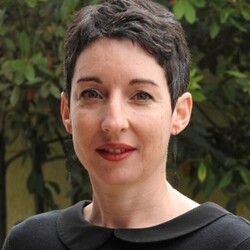
Dr. Laurie LACARRIÈRE
INSA Toulouse – LMDC, France
Tentative Topic: Modeling the durability of structures under multiphysical loads
Laurie LACARRIÈRE
Dr. Laurie Lacarrière is a Full Professor at INSA Toulouse- LMDC, France. Her research specializes in the numerical modelling of THCM couplings for predicting the behaviour of reinforced concrete structures. She focuses on blended cement hydration, chemical evolutions in cement paste under conditions like acid attacks and high temperatures, and chemo-mechanical couplings.. Her work is particularly applied to addressing early-age cracking in massive reinforced concrete structures, the behavior of nuclear plant containment under high temperatures, and the long-term performance of nuclear waste storage exposed to aggressive water. Additionally, she teaches courses on Finite Element and Nonlinear Mechanics.

Dr. Sreejith NANUKUTTAN
Queen's University Belfast, UK
Tentative Topic: Calcium focused design for longevity of concrete structures in silage environment
Sreejith NANUKUTTAN
Sree Nanukuttan is a Civil Engineer, specialising in both Education and Research connected with Building Materials & Low Carbon Infrastructure. His team is focused on helping concrete industry to transition to net-zero offering. He manages an analytical characterisation facility which focuses on cements, cement replacement materials, microstructure and durability. He manages a team of 2 technicians, 8 researchers and 5 PhD students. He led the development of Widening Pathway programme for Engineering , and Degree Apprenticeship in Civil Engineering. These initiatives are designed to make Engineering education accessible to everyone (SDG4).

Dr. Suriya Prakash S.
IIT Hyderabad, India
Tentative Topic: Long-term Performance of GFRP rebars in Civil Infrastructure
Suriya Prakash. S
Dr. Suriya Prakash S. is a Professor in the Department of Civil Engineering at IIT Hyderabad, India. He has received numerous accolades, including the Teaching Excellence Award at IIT Hyderabad in 2018 and the DAAD Re-invitation Fellowship in 2017. He is an Associate Editor for the Journal of Bridge Engineering, ASCE, and has been recognized with awards such as the Best Research Paper Award at the Structural Engineering Convention, IIT Delhi, in 2014, and the Ramanujan Fellowship (2012-2017) sponsored by the DST, India. Prof. Prakash is also a member of several prestigious professional organizations, including ASCE, ACI, IEI, and EERI, and serves as a reviewer for various renowned journals in his field. His research focuses on the behavior of reinforced and prestressed concrete members, seismic retrofitting, and rehabilitation of structures using FRP composites, earthquake engineering with an emphasis on cyclic models for combined loading, and precast and prefabricated construction.
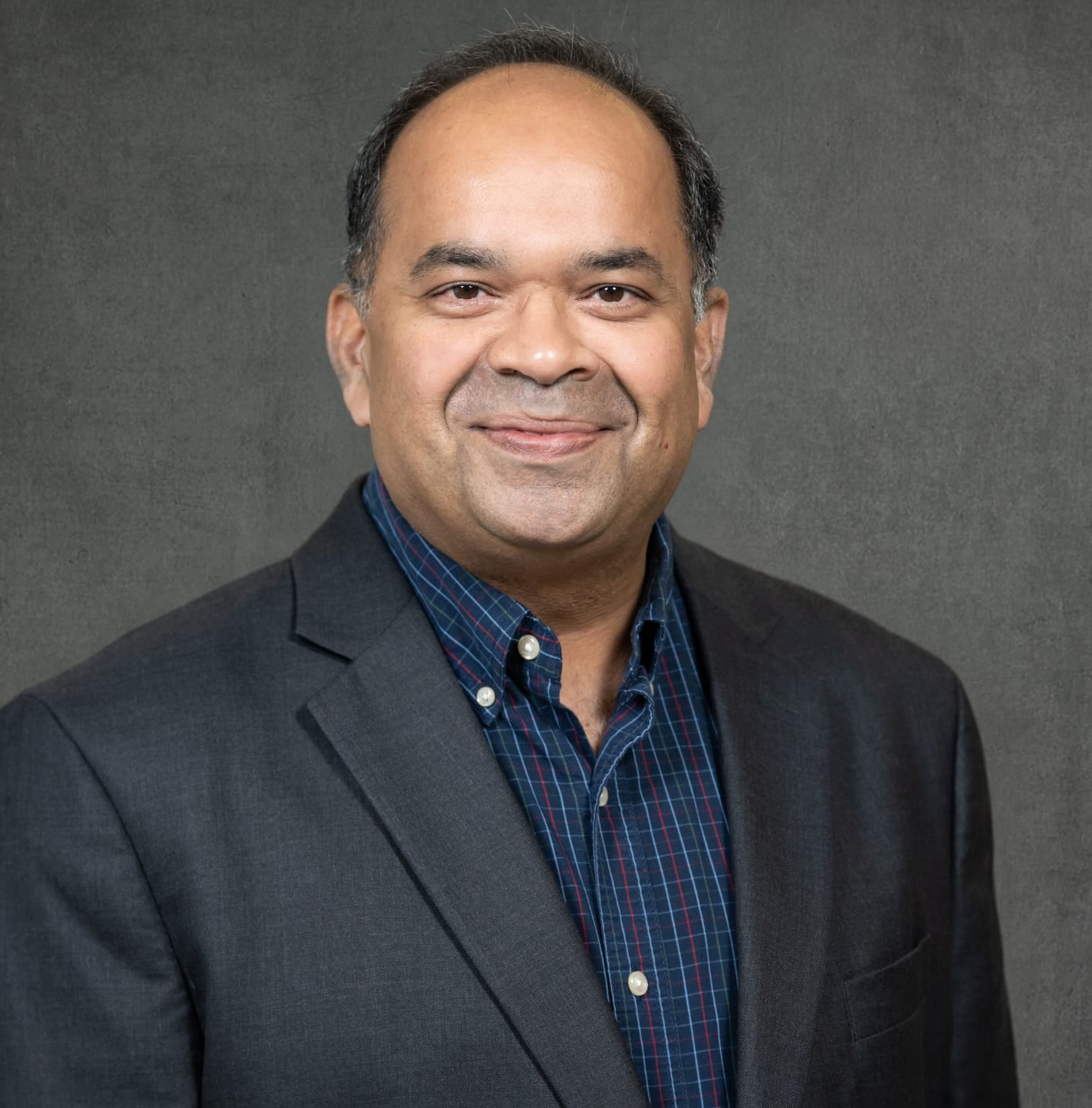
Dr. Prasad Rangaraju
Clemson University, USA
Topic: Shrinkage and bond Response of Ultra-High Performance Concrete (UHPC) as a Thin Overlay for Roadway Applications
Dr. Prasad Rangaraju
Dr. Prasad Rangaraju is a Professor of Civil Engineering in the Glenn Department of Civil Engineering at Clemson University. The focus of his teaching and research is in the Material Science and Engineering of Cementitious Materials, SCMs, Aggregates and Various Specialty Concrete Mixtures such as HPC and UHPC, among others. Before joining Clemson University, Dr. Rangaraju worked as a Senior Research Engineer at the Office of Materials and Road Research in Minnesota DOT. Dr. Rangaraju received his Ph.D. from Purdue University, and he is a Registered Professional Engineer in Minnesota. Dr. Rangaraju is a Fellow of ACI, and a member of ASTM and ASCE. He has served on numerous review panels for NSF, NEUP, NCHRP and other organizations and has served as an Associate Editor of several journals. Dr. Rangaraju’s research is supported by various funding agencies including NSF, DOE, USDA, NAVFAC, SCDOT and Industry. Dr. Rangaraju is the Director of Sustainable Materials Research and Technology (SMART) Lab at Clemson University with a mission to develop and promote technologies related to Green Construction Materials and Practices.

Dr. Enrico SASSONI
University of Bologna, Italy
Tentative Topic: Phosphate treatments to enhance the durability of cementitious materials
Enrico SASSONI
Dr. Enrico Sassoni is an Associate Professor in Science and Technology of Materials at the University of Bologna. In 2015, he was awarded a Marie Skłodowska-Curie fellowship for the HAP4MARBLE project worth €244,000, for which he spent 18 months at Princeton University in USA and 6 months at the University of Göttingen in Germany. His research focuses on the decay mechanisms of historic building materials, consolidants and protective treatments for the conservation of cultural heritage, nanostructured phosphate coatings for biomedical applications, and the development of sustainable materials for the building sector. Dr. Sassoni serves as the Deputy Editor-in-Chief of Materials and Structures and is a member of the editorial boards for RILEM Technical Letters, Frontiers in Materials, and Coatings. Since 2021, he has been Chair of the Technical Activities Committee (TAC) of RILEM. In 2017, he was honored with the Gustavo Colonnetti Medal by RILEM, recognizing researchers under 35 who have made an outstanding scientific contribution to the field of construction materials and structures.

Dr. Marijana SERDAR
University of Zagreb, Croatia
Tentative Topic: Does carbon footprint reduction impair technical performance of concrete?
Marijana SERDAR
Dr. Marijana Serdar is an Associate Professor in the Department of Materials at the University of Zagreb. Her research encompasses the design, testing, and application of durable and sustainable construction materials, as well as the development of design approaches for more durable structures. Dr. Serdar has contributed to several national scientific and technological projects funded by the Ministry of Science and Education of the Republic of Croatia, the National Science Foundation, the Unity through Knowledge Fund (UKF), and the Bicro Agency. She has also been involved in international projects under COST, LIFE, FP6, FP7, and CIP Eco-Innovation.
She coordinated the project "The Composition of Corrosion Products on Corrosion-Resistant Concrete Reinforcement," funded by UKF, for which she spent six months as a visting researcher at the University of California, Berkeley. Additionally, in 2014, she led the project "Phenomenological Modelling of Carbonation-Induced Corrosion of Radioactive Waste Disposal Structures" (PHENEMICS), funded by Marie-Curie COFUND NEWFELPRO, during which she spent two years as a postdoctoral researcher at the French Atomic Energy Commission (CEA) in Saclay. In 2015, she was honored with the annual “Vera Johanides” award for young scientists from the Croatian Academy of Engineering.

Dr. Lok Pratap SINGH
Central Building Research Institute, India
Tentative Topic: Enhancing the performance and durability of cementitious materials through nanotechnology
Lok Pratap SINGH
Dr. L.P. Singh, FRSC, is a distinguished scientist and researcher with a notable career in Research & Development. He has demonstrated exceptional expertise in managing various research projects of both international and national significance, fostering collaboration, and driving innovation. Dr. Singh is dedicated to advancing scientific knowledge and translating research into practical applications, as evidenced by his strong track record.
Dr. Singh earned his Ph.D. in Physical Chemistry from the University of Roorkee (now IIT Roorkee) in 1996. His exemplary contributions to research and development have earned him the prestigious First Khosla Research Award (Gold Medal) and the Second Khosla Research Award (Silver Medal). His career, spanning over 30 years, includes positions as a Centre of Excellence Fellow at the National Institute of Materials and Chemical Research in Japan and as a Scientist at the CSIR-Central Building Research Institute in Roorkee.
Recognized as a prominent figure in Nanotechnology for Cement-Based Materials, Dr. Singh has published over 100 substantial research articles in international publications, authored seven book chapters, registered three patents, and transferred several technologies to different MSMEs. His work has garnered over 6,700 citations with an h-index of 40. He has supervised more than eight doctoral theses, with six more in progress, and over 50 postgraduate dissertations. Dr. Singh has also established international collaborations through various foreign visits and bilateral programs.
For his extraordinary contributions, Dr. Singh has been conferred the title of Fellow of the Royal Society of Chemistry, London, and is listed among the top 2% of scientists worldwide according to the Stanford University ranking in August 2021. He was also awarded the “Outstanding Concrete Technologist Award” in 2015 by the Indian Concrete Institute (ICI) and UltraTech Cement.
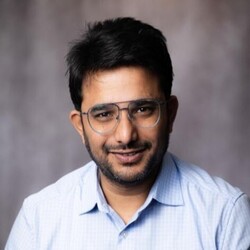
Dr. Surender SINGH
IIT Madras, India
Tentative Topic: Strategies to Induce Sustainability in Rigid Pavements through Recycling of Concrete Waste — IITM Experience
Surender SINGH
Dr. Surender Singh is an Assistant Professor in the Department of Civil Engineering, specializing in Transportation Engineering, at the Indian Institute of Technology Madras (IIT Madras), Chennai, India. His research interests include recycling of pavements, cement concrete roads, roller compacted concrete pavements, and special concretes. He has been the principal investigator on numerous sponsored research projects and guided several research scholars. Surender is the current Chairperson of the RILEM Youth Council and a standing committee member of the Transportation Research Board (TRB) technical committee on the design and rehabilitation of concrete pavements (AKP20). He is a recipient of several academic awards including the INAE Young Associate Award, the Indian Roads Congress Bihar P.W.D medal, and the Young Faculty Recognition Award.
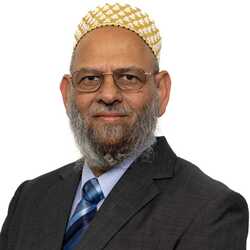
Dr. Ali Akbar SOHANGHPURWALA
CONCORR, Inc., USA
Tentative Topic: Application of service life modeling of reinforced concrete structures
Ali Akbar SOHANGHPURWALA
Ali Akbar Sohanghpurwala is one of the founders and President of CONCORR, Inc., a company specializing in technologies for mitigating corrosion of reinforcement, both conventional and stressed, in reinforced concrete structures. With over 35 years of experience, he is a leading expert in corrosion mitigation technology and has been deeply involved in all aspects of the industry.
His extensive expertise spans both research and practical applications of corrosion evaluation and mitigation technologies. His major contributions to the sector include the development of a protocol for bridge condition assessment and service life modeling as part of an NCHRP project, and a manual on the service life of corrosion-damaged reinforced concrete bridge superstructure elements which has been endorsed by the TRB for adoption by AASHTO. Additionally, he created a mathematical model for current distribution in impressed current cathodic protection systems.
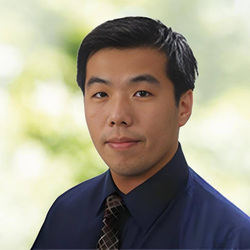
Dr. Pang SZE DAI
NUS, Singapore
Tentative Topic: Effect of Climate Change on Building Materials: Predictions from Accelerated Testing and Machine Learning
Pang SZE DAI
Pang Sze Dai currently holds the Dean’s Chair Professor in the Department of Civil & Environmental Engineering at the National University of Singapore. He is currently the Deputy Head of Academic Matters in the department and the Director of Centre for Resource Circularity and Resilience (CR)2 (https://cde.nus.edu.sg/cee/research/research-centres/cr2/). He has played a pivotal role in the launch of the new programmes in NUS which include the Engineering Science Programme, Innovation and Design Programme and NUS Cities. He is currently the Vice-Chairman of the IES-IStructE Joint Committee and serving in the Council for the Singapore Structural Steel Society (SSSS), iBuildSG Tripartite Committee, Singapore Accreditation Council (SAC) Technical Committees, and judging panel for the SSSS Structural Steel Excellence Award and the IStructE Singapore Structural Award. He sits on the Editorial Board on a leading Nature journal on materials sustainability to drive research on environmentally sustainable building materials (https://www.nature.com/npjmatsustain/). He has dedicated his efforts to researching cutting-edge and eco-friendly building materials and technologies, aiming to enhance both productivity and sustainability. Over the past few years, his focus has shifted towards collaborative endeavors with the industry, specifically in reducing net carbon emissions within the Built Environment. This involves the strategic upscaling of waste-to-resources to foster material circularity, incorporating innovative methods for capturing carbon dioxide in building materials. Additionally, he has developed evaluation tools designed to assist in selecting design solutions and technologies to minimize life-cycle carbon emissions. Currently, he has been involved in multiple national research projects on material circularity, low-carbon building materials, carbon mineralization and aging building materials.

Dr. Bernardo TUTIKIAN
Universidade do Vale do Rio dos Sinos, Brazil
Tentative Topic: Accidents of concrete structures under fire (or high temperatures)
Prof. Bernardo TUTIKIAN
Bernardo Tutikian is a professor and researcher at the University of Vale do Rio dos Sinos - RS (UNISINOS), being a permanent professor of the PG Program in Civil Engineering and the Professional Master's Degree in Architecture and Urbanism. He is a researcher at the Technological Institute of Performance for Civil Construction - itt Performance and is coordinator of the Redetec Network project.
He has a postdoctoral degree from CUJAE in 2013, was a visiting professor at the University of Missouri of Science and Technology (USA), is a visiting professor at the Université de Cergy-Pontoise (France) and a researcher at the Universidad de la Costa - CUC (Colombia). He is the author of the book 'Self-compacting concrete', published by PINI in 2021; of the book 'Patologia das Estruturas de Concreto, Aço e Madeira', published by Oficina de Textos, in 2019; and of the book 'Concreto de Ultra Alto Desempenho (UHPC)', published by Oficina de Textos, in 2022.
He is a reviewer for renowned international journals, such as Construction and Building Materials, Cement and Concrete Research and ACI. He is a permanent member of the Steering Board of CONSEC and is Associate Editor of the journal RIEM. Elected advisor to IBRACON (Brazilian Institute of Concrete), former vice president and current director of research and development. He provides consultancy to civil construction companies in the area of concrete dosage, performance and pathology. He has published more than 450 papers in journals and events.
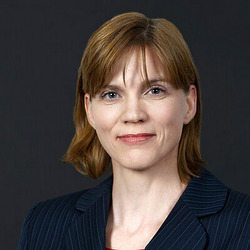
Dr. Anya VOLLPRACHT
RWTH Aachen University, Germany
Tentative Topic: Carbonation in concretes with SCMs
Anya VOLLPRACHT
Dr. Anya Vollpracht is an adjunct professor and working group leader at the Institute of Building Materials Research (ibac), Faculty of Civil Engineering, RWTH Aachen University in Germany. Her research focuses on two main fields: The development of binders with alternative raw materials considering mechanical properties and durability and the environmental compatibility of building materials especially with respect to leaching. Her work on binders includes cementitious as well as alkali-activated materials and aims to develop an understanding of the binder chemistry, the microstructure and the resulting macroscopic properties. She is an enthusiastic member of RILEM and supports the organisation in the Technical Activities Committee (TAC) as convenor of Cluster D – Service life and environmental impact assessment.
Copyright @ 2023 All Rights Reserved by CONSEC24
